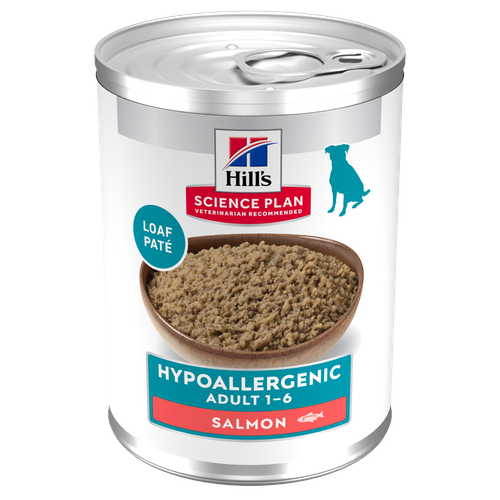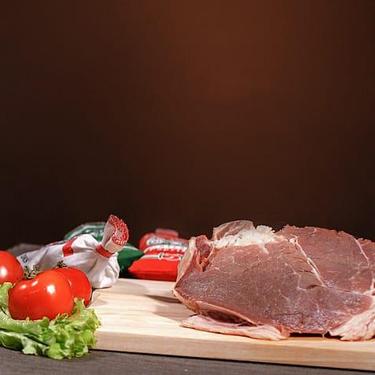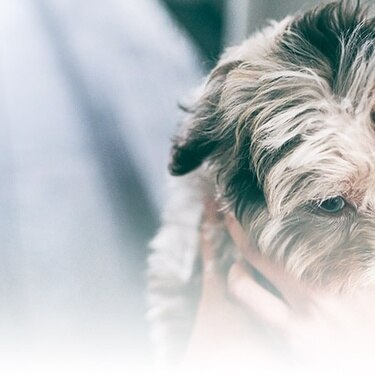
-
Find the right food for your petTake this quiz to see which food may be the best for your furry friend.Find the right food for your petTake this quiz to see which food may be the best for your furry friend.Featured products
 Adult Wet Dog Food with Beef
Adult Wet Dog Food with BeefHill's Science Plan Adult Multipack Wet Dog Food with Chicken, Beef & Turkey are complete premium pet foods for adult dogs from 1 year. Your dog will love these deliciously smooth and savoury minced loaves, formulated for balanced nutrition and overall health.
Shop Now Puppy Food
Puppy FoodHill's Science Plan Puppy Multipack Wet Dog Food with Chicken & Beef are complete premium pet foods for growing puppies from weaning until 1 year old and for pregnant and nursing dogs. Your puppy will love these deliciously smooth and savoury minced loaves, formulated for balanced nutrition and overall health.
Shop Now Mature Adult Dog Food
Mature Adult Dog FoodHill's Science Plan Mature Adult Multipack Wet Dog Food with Chicken & Beef are complete premium pet foods for mature adult dogs from 7 years. Your dog will love these deliciously smooth and savoury minced loaves, formulated to deliver the appropriate amount of energy to support the needs of adult dogs.
Shop NowFeatured products Light Adult Multipack Wet Cat Food with Chicken & Ocean Fish
Light Adult Multipack Wet Cat Food with Chicken & Ocean FishTender chicken chunks in gravy for cats, with L-carnitine and fewer calories for ideal weight management. Packed with high-quality protein, omega-6s, and vitamin E for shiny fur and healthy skin.
Shop Now Adult Multipack Wet Cat Food with Beef, Ocean Fish & Chicken
Adult Multipack Wet Cat Food with Beef, Ocean Fish & ChickenTender chunks in gravy for cats, with high-quality protein to maintain lean muscle. With vitamin E and omega-3s & -6s for healthy skin and balanced minerals to support healthy vital organs.
Shop Now Mature Adult Wet Cat Food with Chicken
Mature Adult Wet Cat Food with Chicken
Tender chicken chunks in gravy for mature adult cats. Made with easy-to-digest ingredients, high-quality protein for lean muscle maintenance and antioxidant vitamins C+E for optimal health.
Shop Now -
Dog
- Dog Tips & Articles
-
Health Category
- Weight
- Food & Environmental Sensitivities
- Urinary
- Digestive
- Joint
- Kidney
-
Life Stage
- Puppy Nutrition
- Adult Nutrition
- Senior Nutrition
Cat- Cat Tips & Articles
-
Health Category
- Weight
- Skin & Food Sensitivities
- Urinary
- Digestive
- Kidney
-
Life Stage
- Kitten Nutrition
- Adult Nutrition
Featured articles Show some love with wet foods: a great choice for pets with health issues
Show some love with wet foods: a great choice for pets with health issuesShow some love with wet foods: a great choice for pets with health issues.
Read More The Right Diet For Your Pet
The Right Diet For Your PetIn people, the right diet is very important. If you are eating the wrong way for your metabolism, activity level, age and lifestyle you could end up with health issues.
Read More The Incredible Science Behind Your Pet's Microbiome
The Incredible Science Behind Your Pet's MicrobiomeLearn what your pet's microbiome is, how it contributes to your pet's gut and overall health, and why nutrition is important in maintaining healthy microbiomes.
Read More -


Having a puppy is a lovely time for everyone concerned - they are young and boisterous and a joy to have around. On the other hand, because they are so young and dependent it can be really worrying if they become unwell. Diarrhoea is one such worry that many owners encounter and it’s unpleasant for both you and your puppy. Most animals, and humans for that matter, get diarrhoea at some point in their lives and it’s not always a reason for a medical exam but in small and young animals it can be more serious because of their age and size.
Signs of diarrhoea can vary from soft poo like a cow pat to watery or bloody poo that just runs out, or may be explosive in some cases. You may see bright red blood or if the poo looks very dark or black it may be a sign of bleeding high up in the digestive tract. This can be more serious than fresh blood in some cases, even though it's not as shocking to see. Your puppy may strain to go to the toilet, you may see mucus, you might see messy, dirty fur round their back end, if you missed seeing the actual poo because it was left in the garden when you weren’t looking.
So what might give your puppy diarrhoea and when should you be concerned?
Causes of diarrhoea in puppies.
Stress. This is a really common cause of diarrhoea, especially in puppies that have recently moved home. Being taken away from mum and going into a new house with different people, smells and sounds is a daunting thing for any animal to go through. Try to visit your puppy several times so they get used to you and your family and leave a blanket with the breeder or a teddy so that your puppy has something familiar to bring to your house.
A change of food. Any sudden change of food in any age dog can spark an intestinal upset like diarrhoea but in puppies it tends to happen at a stressful time and their gastrointestinal tracts are still developing so it may be more pronounced. Always try to get enough food from the breeder to last at least a week so that if you do want to change to a different food, you can do it gradually over five to seven days.
Nutrition during growth is extremely important to make sure your puppy grows at a healthy rate, gets the right balance of vitamins and minerals and all the essential nutrients for the development of their brain and senses. Different sizes of dog also have different needs so always talk to your vet about the best nutrition for your age and breed of puppy. Never feed puppies a raw food diet.
Parasites. Worms can be a big problem in puppies. They can be picked up from their mothers in the uterus, through the milk and in the whelping environment. Always ask the breeder before you acquire a puppy, about the mum’s and the puppies’ worming history. If they haven’t been treated or the breeder doesn’t know, it’s probably a good idea to look elsewhere. As soon as you get a new puppy ask your vet about worming going forward because they need regular treatments to catch any worms that are dormant and waiting to hatch.


Tasty Tips
Infectious disease. Puppies get antibodies from their mums so rely on this passed-on immunity until they can get vaccinated themselves. Again, knowing the vaccination history of the mother is essential. Infectious diseases like parvovirus are devastating and still kill many puppies and young dogs every year. These cause very severe, often bloody and foul-smelling diarrhoea and can debilitate a puppy in no time at all. Please always make sure to ask questions of your breeder and make sure you keep your puppy’s vaccinations up to date.
Foreign bodies. Dogs are notorious for eating a wide range of weird and wonderful things, especially when they’re older puppies. Vets, over the years, have removed pretty much anything you can think of from dogs’ intestines, from socks to bread knives! Foreign bodies, depending on where they get stuck and how long that takes may be a cause of regurgitation, vomiting, lack of stools and also diarrhoea.
What to do if your puppy has diarrhoea.
You should see your vet as soon as possible if;
Your puppy has vomiting as well as diarrhoea
Your puppy has uncontrollable watery or bloody diarrhoea
Your puppy stops eating or seems lethargic and depressed
Your puppy is bright but the diarrhoea goes on for more than two days
If your puppy seems bright, is eating, drinking and playing then you can probably afford to wait a day or two to see if the situation resolves. If you’ve just recently got the puppy home, it may well be stress. If you changed the food too quickly, put the puppy back on the previous diet, wait for things to settle, then do a more gradual transition.
The treatment for your puppy’s diarrhoea will depend on the cause and may range from some digestive support food for a few days to hospitalisation in the case of suspected severe losses. With any small or young animal, getting help sooner rather than later is always by far the best option.
Reviewed by Dr. Hein Meyer, DVM, PhD, Dipl-ECVIM-CA


One of our staff authors prepared this article for you
Related products

Hill's Science Plan Mature Adult Multipack Wet Dog Food with Chicken & Beef are complete premium pet foods for mature adult dogs from 7 years. Your dog will love these deliciously smooth and savoury minced loaves, formulated to deliver the appropriate amount of energy to support the needs of adult dogs.

Hill's Science Plan Puppy Multipack Wet Dog Food with Chicken & Beef are complete premium pet foods for growing puppies from weaning until 1 year old and for pregnant and nursing dogs. Your puppy will love these deliciously smooth and savoury minced loaves, formulated for balanced nutrition and overall health.

Hill's Science Plan Adult Multipack Wet Dog Food with Chicken, Beef & Turkey are complete premium pet foods for adult dogs from 1 year. Your dog will love these deliciously smooth and savoury minced loaves, formulated for balanced nutrition and overall health.

Hill's Science Plan Hypoallergenic Adult Wet Dog Food with Salmon is a complete premium pet food for all adult dogs from 1 year. This savoury tinned loaf is specially formulated for dogs with delicate skin and stomachs. It features a single novel animal protein source and is grain-free.
Related articles

Learn about the potential health risks of a raw diet for dogs and why they aren't the best option for your pup or you.

Learn effective tips for feeding a dog that's a picky eater and ensure proper nutrition for a finicky eater. Discover tips for pet parents at Hill's Pet UK.

Many human foods are dangerous to dogs. Read about 5 of the worst toxic food offenders that can kill your dog - and how much it takes to hurt them.

How, when and what to feed your new puppy is an important decision, learn more about the things to consider for feeding your puppy.

Put your dog on a diet without them knowing
Our low calorie formula helps you control your dog's weight. It's packed with high-quality protein for building lean muscles, and made with purposeful ingredients for a flavourful, nutritious meal. Clinically proven antioxidants, Vitamin C+E, help promote a healthy immune system.
Put your dog on a diet without them knowing
Our low calorie formula helps you control your dog's weight. It's packed with high-quality protein for building lean muscles, and made with purposeful ingredients for a flavourful, nutritious meal. Clinically proven antioxidants, Vitamin C+E, help promote a healthy immune system.

